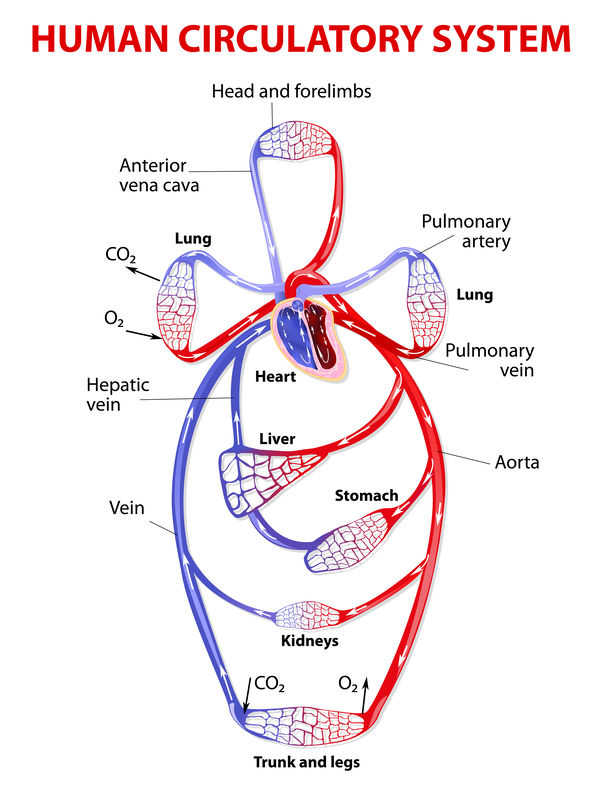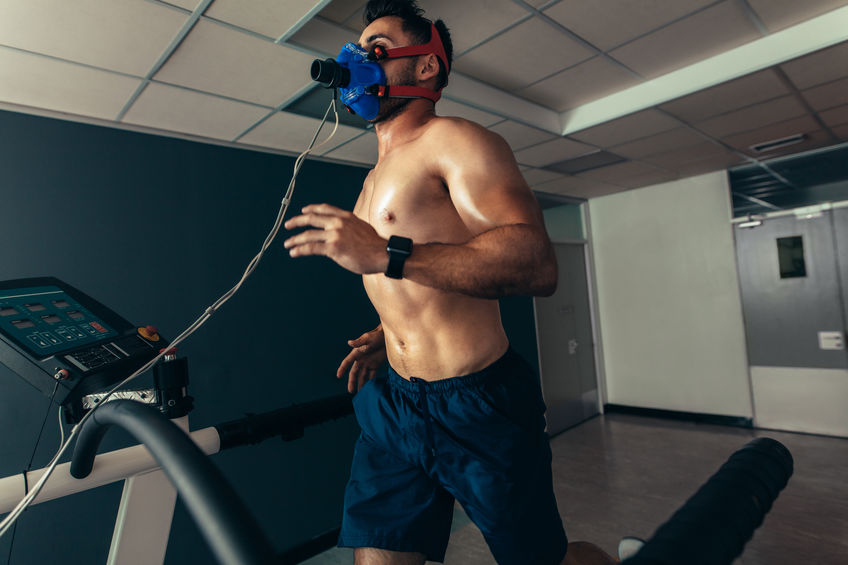
Physiology of Endurance Training Part 1: Energy Systems
Understanding how our bodies work will be quite helpful in our pursuit to optimise Endurance performance. A person training for competing in endurance-based events requires

Understanding how our bodies work will be quite helpful in our pursuit to optimise Endurance performance. A person training for competing in endurance-based events requires

In our earlier blog we have seen that endurance based activities primarily depend on Oxidative Phosphorylation (Oxygen) energy system, hence it is beneficial for an

Until now, we have seen that an improvement in the oxygen carrying ability is an important factor contributing to peak performance in endurance sport, since

Skeletal Muscle Fibre Types : Most textbooks on exercise physiology classify the skeletal muscle fibres into three basic types. However, recent research suggests that there

The goal of every Training Program is to maximize effectiveness and improve competitive performance. By minimising risk of injuries and maximising enjoyment, a well-designed training
D.Ped, DNB (Paeds.) PGPN (Boston)
Dr Vatsal Shah is consultant pediatrician and neonatologist with special interest in critical care.
He is the Founder at WeCare Women’s & Children’s Hospital in Ahmedabad, founded in 2014.
He has presented Papers with various publications to his name.
MD; MNAMS (GE); MACG.
Dr. Khanna comes with a vast experience of over 3 decades in the field of gastroenterology; trained in Endoscopy at Hamburg (Germany), a pioneering centre in this field.
He has held numerous faculty positions and has been a DNBE teacher for the past 15 years.
He has co-authored 3 textbooks with 15 National and International Publications to his name.
He consults at Holy Spirit, LH Hiranandani, Criticare Hospitals and at his private clinic in Mumbai.
I worked for a month with mind your fitness and it was a great experience
Prachiti mali was my nutritionist and she helped me with my diet plan for the month !
What really liked about the plan was we had a consultation call, and they understood what my needs are exactly and then designed the plan for me!
we had 3 follow up calls in which very specific questions were asked and solutions were given.
The diet given wasn’t very hard to follow, it was simple and easy to follow !
With very minimal use of supplements i could get back to the stage that i wanted to be in terms of my energy levels and recovery !
I would like to thank the entire team for offering me the plan and helping me.
MBBS (Bom), MD Internal Medicine (USA)
MD Endocrinology, Diabetes and Metabolism (USA)
Certifications
Society of Metabolic Health Practitioners certified MHP
MINT certified Motivational Interviewing Trainer
Past certification: ACSM Certified Personal Trainer
Past certification: AADE Certified Diabetes Educator
Reiki practitioner
Dr Roshani is a Specialist in Lifestyle change for Hormone balance, Diabetes and Metabolism & Founder, Reisaan Health and Aasaan Health Solutions LLP with 15+ years of clinical experience.
Her goal is to work with patients using an integrated approach combining nutrition, sleep habits, stress management and exercise to achieve better health with less medication. She works on a 3-6 month program basis.
Her practice is not a typical dawakhana, she works virtually to help you dawa-kum-khana!
MD, FCCM, IDCCM, FICCM, FICP
Dr. Subhal Dixit is a Consulting Physician & Critical Care Specialist with 25 years of experience.
He is the Director ICU at Sanjeevan Hospital, Pune. He has been the Past President of The Indian Society of Critical Care Medicine & the Past Chancellor of The Indian College of Critical Care Medicine. He’s also an Executive Council Member of the Academy of Pulmonary and Critical Care Medicine & Treasurer at Sepsis Forum India.
A visiting Internal Medicine & Critical Care Consultant at various hospitals in Pune, Dr Dixit has presented research papers with various publications to his name.
MA Psychology (Clinical Psychology)
Psychologist at Talk To Me Mental Health NGO, Mumbai
Suicide Prevention Interventionist
Roshni possesses 7 years of expertise in the field of mental health. She has undergone training in Suicide First Aid (SFA), a certification program provided by the National Centre for Suicide Prevention Education & Training in the United Kingdom, which focuses on crisis intervention and initial assistance for individuals experiencing suicidal thoughts or behaviour.
She has primarily focused on career counselling and providing therapeutic assistance to individuals dealing with anxiety, psychosocial adjustment problems, depression, and interpersonal conflicts. She firmly believes that nurturing a sound mental state can enable individuals to not only flourish but also acquire valuable skills that promote mental serenity and well-being.
MA Psychology (Clinical Psychology)
Psychologist at Talk To Me Mental Health NGO, Mumbai
Rational Emotive Behaviour Therapy Specialist
Tanvee possesses 3 years of expertise in the field of mental health. She has undergone training in Rational Emotive Behaviour Therapy (Level I & II in Rational Emotive Behaviour Therapy (REBT), In Vivo – Mumbai Centre for REBT).
REBT is an action-oriented approach which focuses on helping people deal with irrational beliefs and manage their emotions, thoughts and behaviours in a healthier, more realistic way. Her main focus areas include anxiety, depression, relationship conflicts and adjustment problems.
M.Sc. Sports Nutrition, P.G. Diploma in Dietetics & Applied Nutrition
Prachiti is a qualified clinical & sports nutritionist. She has a sound knowledge of health and nutrition, & has been assisting clients in achieving their health goals.
Area of expertise-
Weight management
Cardiac disorders
Diabetes
Endurance & Power Sports
MBBS, MD, FAAP (Pediatric Endocrinology)
Attending Physician and Associate Professor of Pediatrics
Dr Lahoti is associated with Nationwide Children’s Hospital, Columbus, Ohio, one of the top 10 largest children’s hospitals in the USA.
He has over 10 years of experience in taking care of children with diabetes mellitus (type 1 and type 2) and other endocrine disorders including thyroid, growth, puberty and adrenal gland disorders.
He is an active researcher and has also served as a leader in national level committees reviewing newer medications and treatments for diabetes.
Abhay is highly qualified and experienced with a proven track record of 14 years; training clients from diverse backgrounds.
Certifications
His approach to coaching:
Whether you are an athlete looking to improve your performance or just want to live a healthier lifestyle, Abhay has the knowledge and skills to guide you towards success.
M.Sc. (Sports Nutrition), B.Sc. (Dietetics), CDE
Janvi is a qualified sports & clinical nutritionist and a certified diabetes educator.
She’s a topper at the postgraduate level & has received Dr. K. U. Naram award by AFST(I), Mumbai chapter.
AREAS OF EXPERTISE
MPT (Neuro), C/NDT
Specializations:
Dr. Bhakti has more than 7 years of clinical experience in:
MBBS, DNB (Internal Medicine),DNB (Nephrology)
Dr. Deshmukh is a consulting Nephrologist at AMRI Hospital, Kolkata with 5 years of experience in the field of Nephrology.
He manages patients with various kidney problems such as acute and chronic renal failure on hemodialysis and peritoneal dialysis, nephrotic & nephritic syndrome, acid – base disorders, CRRT, kidney transplants: both in the Private and Government setups.
He has completed his DNB Nephrology from Apollo Hospitals, Kolkata.
He is also involved in research work related to Covid 19 and renal dysfunction.
M.B.B.S., D.N.B(General Medicine), IDCCM, FICCM
Dr. Kapil comes with a vast experience of over a decade in the field of medicine. He has hands-on experience in managing complicated metabolic disorders. He is known for his expertise related to metabolic disorders like diabetes, thyroid dysfunction and cardiac conditions. His vision is to cure metabolic issues in the Indian population with minimal use of medication and focusing mostly on integrated lifestyle changes.
B.D.S, CCCE, CLE (USA)
Lactation counselor, Childbirth educator and sound healing therapist consultant at Nanavati hospital, Eva nursing home, Wagh nursing home, Mumbai founder at Naadbrahma founder at birth rejoice.
CERTIFICATIONS
Dr. Jui Shinde is an internationally certified lactation counsellor and childbirth educator who has guided more than 4000 mothers in their breastfeeding journey. She takes prenatal and postnatal lactation counselling sessions for the millennial “moms to be” and addresses their breastfeeding needs. She helps to resolve breastfeeding difficulties and prepare moms for a blissful breastfeeding journey.
M.B.B.S, Dip. Anesthesiology
Anaesthesiologist, currently engaged as covid ICU in-charge (Woman’s hospital and dist. hospital, Ratnagiri)
EDUCATIONAL QUALIFICATION
AREAS OF EXPERIENCE>
MBBS, DCH Owner, “Dr. Mehta Child Clinic” (Wakad, Pune) Partner, “Spandan Clinic” (Hinjewadi, Pune)
CERTIFICATIONS
Dr. Parnami Mehta is a Maharashtra medical council registered pediatrician. She received her M.B.B.S degree from government medical college, Surat and completed her pediatric residency from college of physicians and surgeons, Mumbai. After practicing for several years at different hospitals, Dr. Mehta moved into the private practice of pediatrics and started her clinic in Pune under the name of Dr. Mehta child clinic in 2013. She believes in providing quality care to her patients through education and a preventive approach. She conducts free medical camps for underprivileged children.
MBBS, DNB Ortho, D Ortho, FCPO
CERTIFICATIONS
Dr. Chintan Doshi is a sports medicine specialist and orthopedic surgeon with more than 10 yrs of experience in orthopedic surgeries. He is internationally trained at multiple institutes from around the globe and has vast experience in treating and managing sports injuries and orthopedic conditions. He is attached to many premier institutes in Mumbai and is available for online and onsite consultations.
M.Sc (Sports & Exercise Psychology)
Varadayini has completed her Master’s from Loughborough university, U.K in sport and exercise psychology with 7 years of experience in the field. She has also completed her advance therapy courses in rational emotive behavior therapy (R.E.B.T) from Swati Khanolkar who is a certified trainer from Albert Ellis Institute, New York. She specializes in training athletes psychologically to achieve peak/ optimal performance in their sport through techniques and methods used under sport and performance psychology. She has worked with individuals and teams competing at the National and International level. She also addresses mental health issues in athletes who may need further clinical interventions.
Certifications/Specializations:
Dr. Mili has more than 15 years of experience of clinical practice with well-known hospitals in Mumbai. She has worked with renowned national & international gym chains as special population physiotherapist.
Currently she is actively working as a Women’s Health & Wellness Physiotherapist (Pre and Postnatal Pregnancy, Lactation & Breastfeeding Management Specialist).
BPT, M.I.A.P, CMT(AUS), MCMT(USA)
Founder Stride Podiatry (Mumbai, Indore, Jammu)
Vice President Indian Podiatry Physiotherapy Association
Advisor and Panelists at GALF, Kan Innovation
Certifications:
• Axign Medical: Certified Practitioner & Distributor for India, since 2017
• Accredited Footbalance Medical Expert: March 2018
• Certificate: in Foot Ankle & Lower Limb Biomechanics, Dispensing Medical Grade Orthotics by Vasyli Medical, November 2010
• Master in Manual Therapy USA 2020
Dr. Pallavi has 15+ years of experience in managing rehab, foot assessment/orthotics and sports performance diagnostics.
Certifications
Manjusha brings 6 + years of training experience.
She believes in a comprehensive approach towards fitness and wellness. As a professional fitness athlete and yoga practitioner, she is passionate about promoting holistic & sustainable fitness.
BPT, MPT (SPORTS), CPT (ISSA, USA), MIAP
1. Lead sports physiotherapist at Kokilaben Dhirubhai Ambani hospital
2. Head physiotherapist – Jaipur pink panthers at vivo pro Kabbadi season 8
FORMERLY
Yash specializes in sports and musculoskeletal injuries. Over a period of 11 years, he has successfully managed Elite athletes, sports enthusiasts and desk job workers with his expertise. Prescribing focused exercises Following a comprehensive clinical assessment and treating the source of problem in the most effective and innovative manner is his niche.
“Analyzing neuro-musculo-skeletal issues gives us an insight into our current capacities and shortcomings. This provides an opportunity to prevent a lot of health issues ahead in time thereby reinstating prevention is the new Cure”.
BPT , PGDHHM
Anuja has an experience of 6 years in rehabilitating cardiac patients (Ex co-ordinator of Asian heart hospital of physiotherapy and cardiac rehabilitation department). She also holds a postgraduate diploma in hospital and healthcare management (PGDHHM, Symbiosis, Pune) and a certified sports nutritionist from American college of sports medicine.
AREA OF EXPERTISE
Qualifications:
Registered Dietitian (Indian Dietetic Association)
Certified Diabetes Educator (International Diabetes Federation)
Authorized Lactation Counsellor (BPNI)
Infant & Young Child Feeding (IYCF) Counselling Specialist by BPNI/IBFAN
PhD (Food Science & Nutrition)
Founder – Nourish 1000 Days
Nourish 1000 Days focuses on entire spectrum of first 1000 days of life (i.e. from conception to 2 years of age).
Starting from counseling during antenatal (pregnancy) and postnatal (after delivery) period for mother and baby. It has a significantly strong breastfeeding support wing to promote and propagate the essential components of Infant and Young child feeding practices.
Pooja aspires to improve the statistics of breastfeeding in India by ensuring early initiation and exclusive breastfeeding in the first 6 months. She is the recipient of the “Young Scientist Award” by Nutrition Society of India, 2010 and has published several research papers in National and International journals.
MBBS, MD (Medicine), DNB (Cardiology), FSCAI
Director of SYNERGY HEART INSTITUTE, PIMPLE SAUDAGAR and ELITE HEART CLINIC WAKAD
Dr. Sachin Hundekari is a senior interventional cardiologist with more than 10 years of experience. He is a Director at Synergy Heart Institute and Elite Heart Clinic in Pune.
He specialises in interventions like complex angioplasties, device closures and pacemaker implantations.
He is active in the area of clinical research, has presented papers in national and international forums and has participated in many international trials.
Master Entertainment and Sports Law from UCLA, School of Law
Ms. Aahna Mehrotra is the founder/principal lawyer at AM sports law and management co. and partner at TMT law practice. She advises clients on matters relating to
Aahna is also the vice-chairperson of the national anti-doping disciplinary (NADA) panel and a member of the arbitrational tribunal constituted by a state football federation. She has been instrumental in setting up some of the major franchise-based leagues in India and serves as a visiting faculty at several institutions of repute. Amongst her most notable publications is co-authoring the second edition of the book ‘Law and Sports in India’ published by LexisNexis.
DNB (MED), MNAMS, FRSH (UK), FEAC, P.G. DIABETOLOGY (US)
Dr. Abhishek bhargav is a graduate from grant medical college & sir j.j group of hospitals and has subsequently done his dnb medicine. He was formally attached with bombay hospital & asian heart hospital. He is currently practicing as a physician, cardiologist & diabetologist and is attached with hinduja healthcare, seven hills hospital, bses, criticare, aryoganidhi & sujay hospital, mumbai. He was recently awarded the prestigious feac fellowship. He is also the recipient of the prestigious rashtriya gaurav award for medical excellence in 2012. He has presented papers at various national & international conferences with various publications to his name.
MBBS,DNB Medicine, MNAMS
Dr. Mohsin is a practicing physician in the Field of Internal Medicine and Diabetology since 2013 . He also has a specialization in 2D Echocardiography and Stress test. He is a National Faculty at the Annual Conference of Indian Academy of Echocardiography. He has been trained under the stalwarts of Diabetology and Cardiology during his training. He is currently attached to Gurunanak Hospital, Bandra, Mumbai.
MBBS, DGO
Dr. Ujwala Patil Founder Director of Polaris HealthCare, Pune.
Promoter Director at Vision Next, Eye Care Hospital, Pune.
CERTIFICATIONS
A university topper in DGO and providing specialist advice in gynaecology and obstetrics for the past 18 years, Dr. Patil is a LAMAZE certified child birth educator with passion, commitment and dedication for natural birthing and safe motherhood. She has handled many high risk obstetric cases and conducted more than 5000 deliveries.
BDS, MDS, DTR
The Founder of Arthrose is a qualified dental surgeon (Oral Medicine and Radiology) and currently the only certified DTR specialist (Disclusion time reduction) in Mumbai. Arthrose is a chain of clinics dealing with postural correction, headaches, migraines, Facial Pain and TMJ dysfunction in Mumbai, Pune, Nashik. He also practices neuromuscular dentistry. He uses several advanced biometric instruments such as T-Scan, BioElectromyography(BioEMG), Joint Vibration Analysis (JVA) and QuadraTENS for his treatments.
AREA OF EXPERTISE
M.A. (Clinical Psychology)
Narendra has 30 years of experience as a consulting psychologist and psychotherapist. He is a consultant clinical psychologist at sir H N reliance foundation hospital & Research centre, Mumbai. He is also associated with mithibai college and St. andrews college, Mumbai as a lecturer in clinical psychology. He has been a columnist and impaneled on responsible roles for various corporate houses in mumbai.
AREA OF EXPERTISE
M.A. (Clinical Psychology), M. Phil (Applied Psychology)
Sujatha has 10 years of experience in clinical practice and school counseling.
AREA OF EXPERTISE
CERTIFICATIONS
Certified Fitness Trainer & Kettlebell Instructor (Integrated Fitness And Sports Institute)
A certified fitness trainer with over 5 years of experience, Pankaj specialises in personal training. Excellent communication skills and a passion for training makes him a favourite with clients across age groups.
CERTIFICATIONS
1. Certified Personal Trainer
2. Certified Course in Power Yoga
A certified trainer from the esteemed K11 School Of Fitness Sciences Amar has over 15 years of experience in Personal Training. He has helped clients across the board achieve their fitness goals, including those needing special attention and care.
BPT
Dr. Mansi believes we are here to create greater and all it takes is ‘choice’.
She is a senior teacher for the “personal trainer for special populations” course at k11 school of fitness sciences since year 2009. She has also authored the textbook for the course.
Presently, dr. mansi has launched a program for emotional well-being; it’s called ‘life skills’. she has been working towards physical & mental well-being since year 2008.
AREAS OF EXPERTISE
Director (Tripod Gym – Panaji, Goa) Director (TMF – Tariq Mohammad Fitness)
CERTIFICATIONS
A certified trainer from the esteemed K11 school of fitness sciences and with over 10 years of experience in personal training , Tariq has trained clients from all walks of life catering to improvements in general fitness and athletic performance
BPT, M.I.A.P
Head of department, physiotherapy at KLS memorial hospital (Vile Parle, Mumbai), Unique hospital (Andheri, Mumbai), Mangal hospital (Santacruz, Mumbai). She is also attached with BSES hospital, MG global hospital, Meditech hospital, Mumbai.
CERTIFICATIONS
Currently Dr. Jagruti is actively managing covid and post covid rehabilitation..
BPT, MPT (Sports), M.I.A.P
Pranjali is a sports physiotherapist with 7 years of experience handling major elements of physiotherapy. She is a lecturer at k11 school of fitness sciences. She is also a foot/ankle specialist. She has worked with cricket teams in Mumbai.
AREA OF EXPERTISE
BPT, MPT (Sports), M.I.A.P
A clinical sports physiotherapist with an experience of 9 years, Janhvi is a silver medalist and has completed her Masters in sports physical therapy. She specializes in clinical and on-field patient assessment / diagnosis of sports injuries. She is also specialized in goal-oriented rehabilitation exercise prescriptions / guidance for maximal patient care & recovery.
Areas Of Expertise
B.Sc (Nutrition and Dietetics)
Anamta is a qualified nutritionist. Besides having sound knowledge of nutrition science, her strengths include complex problem solving, strong instructional and communication skills.
Areas of expertise:
M.Sc. (Sports Nutrition)
Alifia is a qualified sports nutritionist with a Master’s degree in sports nutrition and has handful experience in helping client reach their goals.
AREAS OF EXPERTISE
B.Sc (Nutrition and Dietetics), M.Sc (Sports Nutrition)
Rabab is a qualified and experienced Clinical & Sports Nutritionist. She has worked with clients from different walks of life, both online and offline.
AREAS OF EXPERTISE